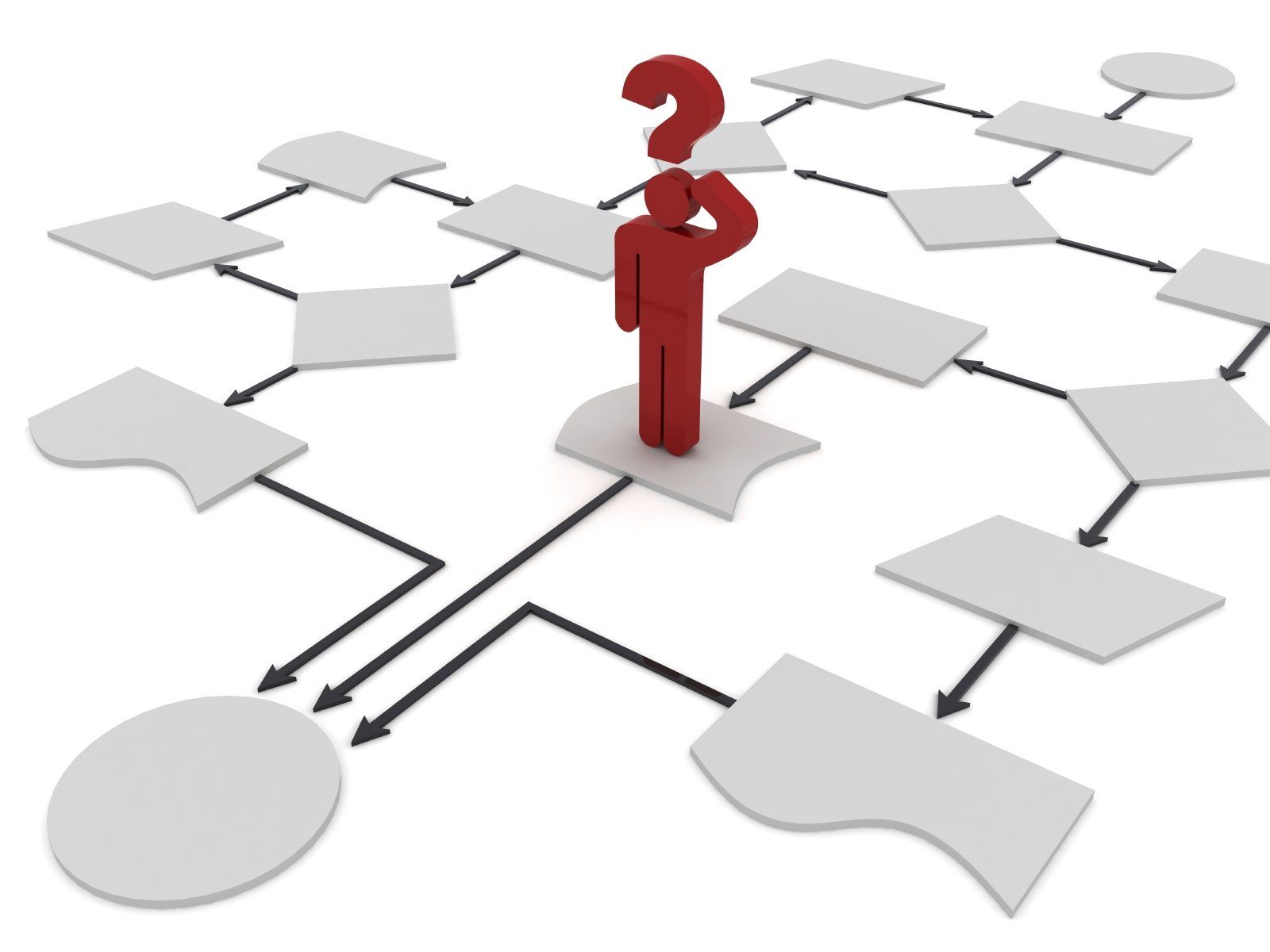Leaving A Narcissist? How to prepare.
Supriya McKenna
Leaving a narcissist? How to prepare.
Like non-narcissists, narcissists do not like rejection.
But if you are planning to leave a relationship with a narcissist, be prepared for the fallout. Because narcissists (and by that I mean those who qualify for the diagnosis of Narcissistic Personality Disorder as defined in the DSM-5) will do quite a bit more more than simply throwing their toys out of the pram upon being left. And if you were ever in any doubt about whether your beau or belle was a true narcissist, you will most certainly know once you’ve walked away, in the most unequivocal terms.
You see, rejecting a person with narcissistic personality disorder triggers a variety of highly predictable responses, born out of what is termed ‘narcissistic injury.' As we have discussed in other articles, although certain types of narcissists (the overt types) may appear to have high self regard and self-esteem, in actual fact all narcissists actually suffer from highly unstable self-esteem.
Healthy adults derive their feelings of self-esteem largely from their own intrinsic sense of self-worth (around 70%), with much less coming from what other people think of them (external validation), at around 20%, and from how they feel they compare to others (10%).
But narcissists show a very different pattern - with a very much reduced sense of intrinsic self worth. A much greater proportion of their self esteem comes from external validation and also from how they feel they compare to others.
This is why they need to appear perfect, or to appear to have the perfect life. This is why they have to believe themselves (overtly or covertly) to be superior to others. This is why they often have to believe that others are envious of them, and that those who are not, simply do not understand their brilliance and uniqueness.
A narcissist will have become used to wearing whatever mask works best for them, to ensure they get the right kind of attention as their source of ‘narcissistic supply.’ (‘Narcissistic supply’ being the sustenance that their self-esteem requires). That could be the mask of the altruist, the grandiose superior being, or the vulnerable victim. Narcissists have often been compared to mythical vampires, the difference being that where a vampire needs feeding with blood to survive, the narcissist needs feeding with narcissistic supply just to feel whole and alive.
Although a narcissist may be predominantly one of the 3 types above for the majority of their life, it is very possible for a narcissist to play all these roles in varying amounts at different times in their lives, depending on what their situation calls for. These roles are simply strategies to enable them to top up their shaky, continually draining self-esteem. It’s like their self-esteem is contained within a bucket with a hole in it, constantly needing a steady stream of narcissistic supply gained from admiration, attention, jealousy etc to stay full.
But one thing is common to all types of narcissists - when you reject them, their already fragile, artificially propped up self esteem takes an enormous beating, and they spectacularly fall off their own self-made pedestals. And what happens next, which can last for months or even years, is a desperate attempt to claw-back their sense of self worth. When a narcissist is rejected, and their supply is withdrawn, they are suddenly forced to actually feel their own pitifully lacking low self esteem and their shame, and this unbearable for them - the avoidance of it being the whole reason why they constructed their protective false persona in the first place. It is this intense emotion that the narcissist feels as ‘narcissistic injury’. It’s even worse if they suffer the humiliation of being left publicly.
But before you feel too sorry for them, just be aware that the callous, cold, manipulative, controlling, vindictive behaviour that results from narcissistic injury can be so shocking that you may find it hard to believe that any human being could be capable of it.
Very often people who have been in long-term relationships with narcissists find this the hardest to believe, incredulous that after years of loyal servitude, they could be treated which such ice-cold heartlessness. Of course, due to arrested emotional development, the narcissist has never developed the ability to feel genuine empathy (although most can convincingly feign so-called ‘cognitive empathy,’ if it is in their interests to do so). This explains why they simply cannot care about the pain that they are inflicting on you as a result of their response to their narcissistic injury. Your pain is irrelevant, unreal, and if it is real, deserved. And most importantly, they can’t feel it, and therefore can’t feel guilt or remorse about it.
In addition, narcissists have a problem with ‘whole object relations’. What this means is that they are unable to see people (and themselves) as having a mixture of good and bad attributes. They are only able to you as being ‘all good’ or ‘all bad’ at any one time, depending how they perceive you are acting towards them. Obviously, if you have left them, you will have severely slighted them, and this will make them see you as ‘all bad,’ meaning that any punishment they inflict upon you as a result of their narcissistic injury will be entirely justified.
Even more sadly, the narcissist is not capable of loving in the unconditional, accepting, reciprocal way that typifies healthy love, no matter how convincing their love seemed at times. There is no sweetening this - the love for you that you thought you saw was never real. It was merely your own love reflected back at you by the narcissist. The narcissist did not adore or love you, she adored or loved the way you made her feel, and what you did for her. And that is another reason why the narcissist’s reaction to you leaving can seem so inhumane and cruel.
In short, if you leave a narcissist, expect no mercy.
Which type of narcissist they predominantly are (covert, overt, altruistic) dictates which (and how many) of the following strategies they will employ in response to their being left by their significant other.
So, here are the 9 behaviours of the rejected narcissist you can expect:
2. Threats
4. Hoovering
5. Replacing you first
6. Stealing
7. Intimidating mind games
This is another expected narcissistic move, which most types of narcissists will pull. You may find it difficult to believe, but these happen consistently and predictably.
But if you are planning to leave a relationship with a narcissist, be prepared for the fallout. Because narcissists (and by that I mean those who qualify for the diagnosis of Narcissistic Personality Disorder as defined in the DSM-5) will do quite a bit more more than simply throwing their toys out of the pram upon being left. And if you were ever in any doubt about whether your beau or belle was a true narcissist, you will most certainly know once you’ve walked away, in the most unequivocal terms.
You see, rejecting a person with narcissistic personality disorder triggers a variety of highly predictable responses, born out of what is termed ‘narcissistic injury.' As we have discussed in other articles, although certain types of narcissists (the overt types) may appear to have high self regard and self-esteem, in actual fact all narcissists actually suffer from highly unstable self-esteem.
Healthy adults derive their feelings of self-esteem largely from their own intrinsic sense of self-worth (around 70%), with much less coming from what other people think of them (external validation), at around 20%, and from how they feel they compare to others (10%).
But narcissists show a very different pattern - with a very much reduced sense of intrinsic self worth. A much greater proportion of their self esteem comes from external validation and also from how they feel they compare to others.
This is why they need to appear perfect, or to appear to have the perfect life. This is why they have to believe themselves (overtly or covertly) to be superior to others. This is why they often have to believe that others are envious of them, and that those who are not, simply do not understand their brilliance and uniqueness.
A narcissist will have become used to wearing whatever mask works best for them, to ensure they get the right kind of attention as their source of ‘narcissistic supply.’ (‘Narcissistic supply’ being the sustenance that their self-esteem requires). That could be the mask of the altruist, the grandiose superior being, or the vulnerable victim. Narcissists have often been compared to mythical vampires, the difference being that where a vampire needs feeding with blood to survive, the narcissist needs feeding with narcissistic supply just to feel whole and alive.
Although a narcissist may be predominantly one of the 3 types above for the majority of their life, it is very possible for a narcissist to play all these roles in varying amounts at different times in their lives, depending on what their situation calls for. These roles are simply strategies to enable them to top up their shaky, continually draining self-esteem. It’s like their self-esteem is contained within a bucket with a hole in it, constantly needing a steady stream of narcissistic supply gained from admiration, attention, jealousy etc to stay full.
But one thing is common to all types of narcissists - when you reject them, their already fragile, artificially propped up self esteem takes an enormous beating, and they spectacularly fall off their own self-made pedestals. And what happens next, which can last for months or even years, is a desperate attempt to claw-back their sense of self worth. When a narcissist is rejected, and their supply is withdrawn, they are suddenly forced to actually feel their own pitifully lacking low self esteem and their shame, and this unbearable for them - the avoidance of it being the whole reason why they constructed their protective false persona in the first place. It is this intense emotion that the narcissist feels as ‘narcissistic injury’. It’s even worse if they suffer the humiliation of being left publicly.
But before you feel too sorry for them, just be aware that the callous, cold, manipulative, controlling, vindictive behaviour that results from narcissistic injury can be so shocking that you may find it hard to believe that any human being could be capable of it.
Very often people who have been in long-term relationships with narcissists find this the hardest to believe, incredulous that after years of loyal servitude, they could be treated which such ice-cold heartlessness. Of course, due to arrested emotional development, the narcissist has never developed the ability to feel genuine empathy (although most can convincingly feign so-called ‘cognitive empathy,’ if it is in their interests to do so). This explains why they simply cannot care about the pain that they are inflicting on you as a result of their response to their narcissistic injury. Your pain is irrelevant, unreal, and if it is real, deserved. And most importantly, they can’t feel it, and therefore can’t feel guilt or remorse about it.
In addition, narcissists have a problem with ‘whole object relations’. What this means is that they are unable to see people (and themselves) as having a mixture of good and bad attributes. They are only able to you as being ‘all good’ or ‘all bad’ at any one time, depending how they perceive you are acting towards them. Obviously, if you have left them, you will have severely slighted them, and this will make them see you as ‘all bad,’ meaning that any punishment they inflict upon you as a result of their narcissistic injury will be entirely justified.
Even more sadly, the narcissist is not capable of loving in the unconditional, accepting, reciprocal way that typifies healthy love, no matter how convincing their love seemed at times. There is no sweetening this - the love for you that you thought you saw was never real. It was merely your own love reflected back at you by the narcissist. The narcissist did not adore or love you, she adored or loved the way you made her feel, and what you did for her. And that is another reason why the narcissist’s reaction to you leaving can seem so inhumane and cruel.
In short, if you leave a narcissist, expect no mercy.
Which type of narcissist they predominantly are (covert, overt, altruistic) dictates which (and how many) of the following strategies they will employ in response to their being left by their significant other.
So, here are the 9 behaviours of the rejected narcissist you can expect:
1. Guilt Tripping
- The narcissist is a natural master manipulator, and will often threaten suicide or even carry out an act of deliberate self harm, to make you feel guilty for thinking about leaving. They are keen to make you think that their blood will be on your hands if you go through with abandoning them.
- They can use out quite high drama tactics in front of you - examples include actually taking an overdose, jumping into traffic so that you are forced to hold them down, repeatedly punching walls with their hands until they bleed, or even head butting walls until they injure themselves.
- They will often tell you that they have been suffering with undiagnosed depression or stress, and that that is the true reason why have they have been difficult to live with.
- If you are married, they may pull the ‘in sickness and in health vow card’ in conjunction with this last ploy.
- They may go through the motions of having therapy to appease you, or suggest couples therapy. Reading self-development books is another manipulative method they use to try to show that they have changed.
- If you have children they will use this to their advantage, most likely telling you that leaving will ruin the children’s lives. (It is ironic that many people leave their narcissist partners to improve their children’s lives).
Guilt tripping is classic of the victim (covert) narcissist, although all types can use it.
A common strategy to make you rethink you position is to threaten to make you suffer financially, or in some other way, if you go through with walking away. Custody threats regarding any children or pets, threats to smear your name, threats to destroy your possessions (eg to burn down your house) are all common, and delivered which such conviction that you will find them believable and scary. Unfortunately, these threats may not be empty, and you should consider legal advice regarding them. Although you may be expecting such threats, they can still come as a big surprise to many.
3. Playing on your insecurities
- If you’ve had a relationship with a narcissist you will be familiar with the 'idealize, devalue, discard cycle' that all narcissists employ to keep you off-balance, hooked into the relationship and unsure of what is coming next. If you look back, this is the pattern that will been present throughout the bulk of your relationship.
- When you threaten to leave a narcissist they quite often tend to ramp up these cycles to quite alarming levels, so you may find yourself in the ‘devalue’ stage once more.
- Here the narcissist may play on your insecurities, by telling you that you will be alone forever if you leave them and that you are unlovable, unattractive, boring, unintelligent, fat or whatever else they have learned you may be insecure about.
- This is the term used for when the narcissist tries to suck you back into the relationship by promising to change, and showering you with love and affection.
- This is when the narcissist revisits the ‘idealise phase’ of the narcissistic abuse cycle of 'idealise, devalue, discard'. They will pull out all the stops to suck you back in, on the grounds that they love you so much that they cannot live without you.
- You will doubtless have tried to explain to the narcissist what it is about the relationship that you cannot live with anymore, and they will be able to change some of these things in the short term to demonstrate their love for you, so great is their fear of abandonment.
- These tactics are often hard for the victim to resist, and you may well be drawn back into the relationship, pulled by the magnetism of the empty promise of true love, and the demonstrable improvements that the narcissist has been able to make.
- The inevitable demise of the relationship will not be far away however, when the devalue phase is upon you once more.
- Most narcissists will already have a number of adoring fans waiting in the wings, who they have been triangulating you with during your relationship. This stems from their insatiable need for admiration and attention, as a source of narcissistic supply (see above). It is simply impossible for one person to be enough to provide all that the narcissist needs supply-wise, so the more people they have orbiting around them, ready to jump into their arms, the better.
- The absolute hallmark of the narcissist is their inability to be relationship-less for any length of time, as without a relationship their narcissistic supply needs are simply not being met. They cannot run the risk of having to feel the reality of their empty self-esteem, and so you will be replaced instantly, sometimes within hours of you saying that you are leaving.
- Expect your narcissist to be on a dating website within hours, dating within days and in another relationship within weeks, no matter how long or serious you thought your relationship with them was. And do not expect subtlety. You may well know about their new relationship, and how perfect it is, practically from the outset.
- This is behaviour common to all types of narcissists, so I urge you to mentally prepare yourself for it. Of course, a leopard cannot change its spots, and you can be sure that once the initial lovebombing phase is over with the new source of supply, they will be being devalued, just like you were, regardless of the image that is bring portrayed to the outside world.
6. Stealing
- If you have a joint mortgage or bank accounts, tell your bank or mortgage lender that you’re relationship is ending and that you would like the accounts frozen, so that money cannot be withdrawn without both parties consent, and mortgage loan amounts cannot be increased to free up cash for the narcissist to take.
- It is almost standard for narcissists to try to buy expensive new cars or similar, or to simply withdraw huge sums of moneys from accounts as soon as they catch wind of your impending desertion. They will also attempt to cut you off from the finances as soon as possible, so you need to be ready well in advance.
- If you have a joint credit card for which you are liable, make sure that the narcissist cannot max these out, by informing the credit card company of the split.
- Change all your passwords for your online bank accounts well before you tell the narcissist you are leaving.
- Take any treasured belongings and photographs to a safe place, even ones that the narcissist has never liked, as you can be sure that they will try to take anything from you of sentimental value or that you hold dear.
- Before you mention leaving, make sure you have enough funds in your bank account, so that when you actually leave you can swiftly separate everything you need to before the narcissist can steal from you.
The narcissist will also attempt to financially abuse you in indirect ways, as well as in the direct ways above. For example:
- They may stop paying their share of the children’s school fees or for extracurricular activities, so that you will have to pay them, thus reducing your available funds. Using the children in this way is typical narcissistic behaviour, and clearly separates them from healthy, loving parents.
- They may stop paying their share of the mortgage again, forcing you to pay it.
- If you are divorcing, they may try to make unreasonable requests of you via their lawyers so that you spend a huge amount on lawyers fees replying to these requests.
- It is a standard ploy for narcissists to deliberately and significantly reduce their earnings as soon as they get wind of your dissatisfaction with the relationship.
- Also, attempting to hide and sell off assets is very common.
Once the narcissist has spent or given away money, it has gone. UK courts generally don’t include it in the financial pot when deciding on the final financial settlement, so be aware of this, so you can protect yourself early.
Narcissists do not play by the rules, even the rules of the court, so be aware that in divorce cases the narcissist is likely to lie or twist his or her financial statement, hiding assets and lying about, or deliberately reducing, income. They may delay returning forms, and drag out procedures, so that you are emotionally drained further.
7. Intimidating mind games
- If you have moved out, they may make a point of slowly driving past your new house, so that you can see them. This can progress to proper stalking, and you may well need to seek legal advice on this.
- They often threaten to bug, or actually do bug the house/car of the partner who left.
- It is common for narcissists to threaten to take their ex-partners pets, so be prepared.
- Expect the narcissist to leave abusive messages for you, send abusive texts and emails and ring you repeatedly. It is best to avoid all direct communication with them in these cases, ignoring all but written communications from their lawyer.
- A bizarre, but oddly common tactic the narcissist may use to destabilise the person who is leaving is to deliberately spell your name wrongly in communications.
- If you are getting divorced, expect the narcissist to try to convince you to go to meditation with them for your own best financial interests - but be aware that unless your mediator understands NPD, this may not work for you, as the narcissist will be good at wearing you down emotionally, pushing all your buttons, and misinforming and influenecing the mediator with characteristic charm and lies. If you do have to go to mediation, you may wish to ask for 'shuttle mediation', where you do not sit in the same room as the narcissist, but the mediator goes between you in different rooms.
- If the narcissist moves out and you are remaining in the former home, be prepared for them to come and go as they please, taking with them whatever possessions they want. I suggest changing the locks early in these circumstances, for your own peace of mind.
- The narcissist may tell you that they have called the police and told them that you have been physically abusive, and you that should leave the house if you want to avoid arrest. (They may be lying, or they may indeed have done so. If you need to stay, and it is safe for you to stay, then do so, and present yourself calmly in the event that the police do arrive).
8. The smear campaign
This is another expected narcissistic move, which most types of narcissists will pull. You may find it difficult to believe, but these happen consistently and predictably.
- Expect to be labelled a prostitute, drug addict or alcoholic.
- Expect the word on the street to be that you were having an affair, or several affairs, and that was the reason for the split. Any infidelities of the narcissist will be absolutely denied (See The Narcissist's Prayer Blog Post).
- Expect to be called an inadequate or abusive parent and to potentially have a custody fight on your hands. Sadly, the narcissistic parent will sacrifice what is in the best interests of the children, in order to exact revenge on the non-narcissistic parent. You will need to stay calm in the face of this, as the narcissist will be able to appear to be the rational, caring parent in court, whilst your fear could make you appear less stable. Document everything including all late and cancelled pick ups of the children, all innappropriate behaviour towards the children and the all ranting communicatons that you will be recieving from the narcissist. ensuring that you have a time and date stamp on this evidence may also be important, so emailing yourself the evidence on the same day is a good idea. This hard evidence will stand you good stead should you need it in court.
- Expect your family and friends to be contacted and lied to about you, with characteristic convincingness. The narcissist will play the victim here, and crocodile tears will fall.
- The narcissist will also badmouth you to work colleagues and acquaintances.
- Expect to lose friends, and respect in the community initially.
- Expect the narcissist to recruit their 'flying monkeys' to help with the smear campaign (the flying monkeys are the narcissist’s fan club, who would do anything to curry favour with him or her, including spreading malicious gossip). They are usually subordinates, as narcissists are usually unable to sustain meaningful friendships with people at the same intellectual level as them, who generally do not provide them with enough unconditional admiration or attention.
- If you share children with the narcissist be prepared for them to attempt to alienate the children from you with a mix of charm, victimhood and lies about you. This is a particularly challenging thing to deal with, particularly if the children are not old enough to understand the narcissist's true personality. Take heart - all will become clear to them in the fullness of time.
- Narcissist's often call the police and try to have you arrested for 'physically abusing them'. Particularly if you are male, it is not uncommon for the police to believe the narcissist, and in many cases you may even find yourself in police custody for a night or so. This is far too common an occurence, sadly.
9. Physical violence
If the narcissist has a history of being physically abusive and, sometimes, even if they do not, this is a very real danger. You will need to remove yourself from the situation immediately and involve the police.
In summary, leaving a narcissist may be one of the most traumatic experiences of your life, but it can be one of the most worthwhile. If you can avoid triggerring narcissistic injury in the narcissist, this may make the process less painful for you, but this may come at a cost. The narcissist may exhibit less of the behaviours above if you allow them to discard you first, by withdrawing slowly from them and giving them less and less of your attention and energy (ie your narcissistic supply), so they move on to another source. Using the Grey Rock Technique
can help with this.
Know that if you can prepare for the worst in the ways above, you will survive it, although it is rare to emerge unscathed. Leaving a narcissist can rock the very foundations of your world, but it is possible to grow and reconfigure from the experience (so called ‘post traumatic growth’). Seek professional help, rely on those close to you, and try to stay strong in the face of adversity.
There is a price for freedom, but it's a price well worth paying.

Do I actually need a lawyer? You may be wondering whether you need a lawyer if you are divorcing, as it is possible in some countries, including in the UK, to apply for a divorce online. However, here in the UK at least, there are three bits to the process – the paper exercise of the divorce, which you don’t need a lawyer for, and the other two parts – the finances and the children. Settling the finances with a narcissist is unlikely to happen without legal input, sadly, as narcissists have a huge sense of entitlement, a need to ‘win’, a lack of empathy regarding your circumstances, a need for narcissistic supply through causing drama and conflict, a belief that you (once you have split up) are ‘all bad’ and deserving of punishment, and a need to draw out the process for as long as possible, by continually shifting goalposts. Add to that the fact that they are practised liars, and will not tell the truth about their finances, and you can see why successfully sorting things out on your own with them is highly unlikely (and probably impossible). If they decide to cause conflict with the children, as they often do, lawyers may well also be needed here. Note that it is possible to represent yourself in court, without a lawyer, but that this tends to work best later on, when you have gained experience in how the system works, and are feeling emotionally stronger. I discuss the benefits of being a ‘Litigant in Person’ in Chapter 28 of my book Narcissists in Divorce: From Leaving to Liberty - The Truth, The Whole Truth and Nothing But The Truth. In the UK there are two types of divorce lawyer – the ‘solicitor’ who does the day-to-day work and liaises directly with you, and the ‘barrister’ (who speaks on your behalf in court, and gives more complicated legal advice). If your barrister has been instructed by your solicitor you can only contact them via your solicitor. However, some barristers (‘direct access barristers’) can be instructed directly by clients, without a solicitor being involved. I need to be brutally frank here, and tell you that far too many lawyers will not disclose the reality of the dysfunctional court system to clients, and they have a vested commercial interest in protracted cases, which narcissistic divorces often become. The wrong lawyer can easily rack up your legal bills but leave you with little to show for it. This is particularly true in the UK for solicitors. So, if you happen to be a UK father, whose narcissistic wife is preventing you from seeing your children, you might want to contact Fathers 4 Justice (www.fathers-4-justice.org) before deciding on whether to instruct a solicitor. Unfortunately, no such cost-effective organization exists exclusively for mothers battling abusive fathers in the UK. However, the UK charity Familes Need Fathers (fnf.org.uk) does provide resources to parents of any gender, for a membership fee. But regardless of where in the world you live, most of you will need to know how to go about finding the right lawyer. The fact of the matter is this: most lawyers do not understand Narcissistic Personality Disorder to the extent they need to, to be able to help you effectively. And many will simply pooh-pooh the idea that your partner is a narcissist, because this is a term that commonly gets bandied around incorrectly, especially in break-ups. I recently gave a talk to 250 lawyers about NPD, during which I asked how many of them had been told by a client that their ex was a narcissist, within the last 2 months. Every single hand went up. I then asked how many of them, having spent a bit of time on these cases, now thought that they were dealing with a ‘real’ narcissist. Only five hands remained in the air, and as I gave my talk, I could see these lawyers nodding their heads vigorously, as I described true narcissistic divorce behaviors. So you can see the problem – the ‘buzzword’ use of the narcissism word, in the general population, means that lawyers are unlikely to take your concerns seriously, until significant emotional, legal and financial damage has already been done. This means that, unless you have a strong recommendation of someone who specifically understands NPD, you are going to have to interview quite a few lawyers (they will often offer free initial consultations) until you find the best one for you. It may be that you have to settle for a lawyer who understands domestic abuse and coercive control instead, but only if they are willing to learn about NPD, and will take all of your concerns seriously. It may also serve you to choose a lawyer who is not in your local area, especially as, since Covid, most consultations can be carried out remotely. You may have a distinct advantage if you do this, as an out-of-area lawyer will not have a reputation of ‘being reasonable’ to maintain with your local judges, and is more likely to actually fight for you, rather than trying to tiptoe around or placate the judge. Lawyers care deeply how their local judges view them – and this can be to your detriment. How to interview a potential lawyer When interviewing potential lawyers, you will need to: Explain the narcissist’s behaviors Explain how you have been affected Ask the lawyer specific questions Explaining your partner’s behaviors Describe the behaviors that you (and any children) have been subjected to during your relationship, with specific examples of each behavior. It’s definitely worth writing these down, to keep you focused. Include examples of: Physical abuse (often not present at all in NPD, however). Rape or sexual boundary violations. Repeatedly putting you down, criticizing you, or calling you names. Isolating you from friends and family. Manipulative behaviors. Exploitative behaviors where they have used you for their gain. Passive aggression (such as silent treatments or stonewalling you). Projection (accusing you of things that they themselves are doing or being, for example accusations of affairs or flirting). Favoring a ‘golden child’ over a ‘scapegoat’, and having an ‘invisible child’. Going through repeated cycles of being nice to you, but then being nasty (the ‘cycle of idealization and devaluation’). Lovebombing at the start of the relationship. Low empathy towards you and the children. Entitled behavior. Controlling behaviors such as: Controlling your finances, or preventing you from having a job. Restricting your access to transport. Threats, including of blackmail (e.g. revenge porn). Threats if you leave them (including threats of suicide). Monitoring how you spend your time. Monitoring your communication with others. Exerting control over your everyday life, such as dictating where you go, who you see, what you wear and preventing you from sleeping. Stopping you from accessing support services, such as medical services or specialist support (including for the children). Forcing you to take part in criminal activity such as taking the blame for their offenses (e.g. speeding tickets). Destroying or damaging household goods, or cruelty to pets Gaslighting such as by: Telling you that you are ‘crazy’. Telling you lies that make you question your reality. Rewriting history so that you question your memory. Invalidating your feelings (e.g. telling you that your feelings are ‘wrong’). Explaining how you have been affected Include examples such as: Walking on eggshells. Continually trying to please them with ‘fawning’ behaviors. Anxiety, depression, panic attacks, complex PTSD. Any physical illnesses. Loss of confidence/self-esteem/support systems. Asking the lawyer specific questions You will want to know: What they understand by the term Narcissistic Personally Disorder. If they tell you that they ‘don’t believe in labelling people’, that ‘everyone thinks their ex is a narcissist’, that narcissists are ‘just another word for high-conflict’ or that it ‘makes no difference whether your partner is a narcissist’ to the legal process and your divorce, get out of there, immediately. If they blithely tell you that they are completely au fait with dealing with narcissists, make sure they tell you the specifics of how narcissists behave in divorce. (A client of mine was once duped by his lawyer into believing that he understood NPD because he had written a blog post on his firm’s website about it. £85,000 later, and no further on in the case, it became patently clear that his lawyer’s blog post had simply been a way to jump on the NPD bandwagon, to attract clients, and in fact, he didn’t really have a clue.) How much experience they have of narcissistic divorces, and what they think the chances are of settling things out of court (through negotiation through lawyers or mediation, for example). If they pride themselves on never or rarely having cases that end up in court, they probably do not have the experience that you need, as the fact is that most divorces like this end up in court. Whether they think narcissists ‘calm down’ over time, and become more reasonable as the divorce progresses. The correct answer is that they do not. If they get this wrong, they have failed the interview. Whether narcissists have the best interests of their children at heart. If they tell you that ‘all parents love their children, whether narcissists or not’ they will not be right for you, and they will enable a lot of damage to be done before they work out the truth. Whether they will help you write any witness statements for court, and put together your financial disclosure, or whether they will just leave this to you. Whether they will go through your partner’s financial disclosure (such as their bank statements) in detail with you, looking for discrepancies and missing information, or whether they expect you to do this without them (most simply do the latter). Whether they are willing to learn about NPD (on their own time) and take on board what you tell them about it, so that your case runs more smoothly. Key takeaways It may take a while to find a lawyer who fits the bill. But whatever you do, don’t choose a ‘nice’ lawyer (with little experience of domestic abuse, coercive control or NPD) over a less personable one who does have the required experience. So often, my clients admit to me that they gave their kindly lawyer repeated chances, because they ‘liked them’, and because they thought that they could learn about NPD during their case, and so help others later on. I’m going to be stern here: you do not just need ‘nice’, ‘understanding’ and ‘sympathetic’ – you need effective too. And as to educating your lawyer so that they can help others (if this is part of your thought process) – again, this may go against the grain, but now is the time for prioritizing your needs and those of your family. I also have to caution you that a senior lawyer who seems very experienced may actually be too stuck in their ways to be effective in your case, although that’s not always true. Conversely, a very junior lawyer might find themselves overwhelmed by everything that comes their way during your case, but be unable to be honest about this with you, and carry on regardless. I’ll warn you now – you may well have to change lawyers at some point in the process, and I explain this further in Chapter 31 of Narcissists in Divorce: From Leaving to Liberty - The Truth, The Whole Truth and Nothing But The Truth , from which this blog post was adapted.

The word "narcissist" is ubiquitous, but are we using it correctly or is it just a buzzword? Expert Dr Supriya McKenna explains what real narcissism is Do you know a narcissist? If you think of your everyday acquaintances, who springs to mind as being a possible narcissist? Your housemate, who is too selfish and lazy to do her own washing up? Your sister, who has never left the house without full make up on? Your work colleague, who is obsessed with designer clothes? Your partner, who cheated on you? Your best friend, who insists on driving a sports car he can’t afford? That date, who ghosted you? But are these people actually narcissists? Well, maybe—but having these traits in isolation doesn’t tell us much. How to recognise a narcissist True "narcissism" is actually Narcissistic Personality Disorder (NPD), a real, diagnosable personality disorder, and there is a precise range of very specific behaviours that result from having it. These behaviours go well beyond being just mean, vain or selfish—undesirable and irritating though these are. "You (or someone you know) will definitely know a real narcissist—but it might not be who you think it is" As a society, we have collectively misappropriated the narcissist word—and in using it incorrectly we are downplaying the seriousness of what real narcissism (NPD) is. And worse, because of this, we are missing the true narcissists in our midst. Narcissistic Personality Disorder is estimated to affect up to one in twenty people, although exact figures vary. Each narcissist affects several people to some degree—their partners, children, extended family, friends, work colleagues and even their casual acquaintances. What is Narcissistic Personality Disorder? NPD is fundamentally a condition of low empathy, where the person has a very limited ability to step into another person’s shoes and feel their pain or joy (or any other emotion).This means that narcissists relate to people on a very different level to an empathic person. Essentially, they cannot deeply care about you, other than in the context of what you can do for them. Confusingly, narcissists are usually able to feign empathy. If we add this low empathy to another hallmark feature of narcissism, a sense of entitlement, you can see how narcissists are able to exploit people for their own gain.The narcissist you know may be exploiting different people for different things. They might be taking credit for other people’s work, using their partner as a domestic slave or provider of sex, and using their children as a way to gain admiration from others. "Narcissists are good at feigning empathy, but they cannot truly feel it" Narcissists see people merely as objects, and their exploitation of others often tips into psychological (and sometimes also physical) abuse. Are narcissists born or made? NPD is partly genetic, but it mostly results from how, as children, the person adapted to a difficult upbringing. As a child, the narcissist developed coping strategies which became "wired in". It’s this wiring that leads to the specific patterns of behaviour that adult narcissists exhibit. The vast majority of people with NPD cannot be cured, although a few specialised psychotherapists report some success. At the core of every single narcissist is a feeling of low self-esteem and shame. But these are feelings which a narcissist cannot bear, so they construct a false persona that they hold up to the outside world to hide behind. "At the core of every single narcissist is a feeling of low self-esteem and shame" This false persona is a shield. It protects the narcissist from feeling their true feelings—and it is very convincing to the onlooker indeed. But a narcissist’s protective false persona can only survive in the presence of external validation. "Narcissists need attention from others, at all times, preferably through admiration and adoration." In the absence of this, they secure attention by causing drama and conflict—and even by instilling fear into others. When a narcissist is getting enough attention their false persona is strong, and they can believe that they are special and unique. The most important thing to know about narcissists is that it is their desperate need to feel special that drives all of their behaviours, and that their need for attention (which is known as "narcissistic supply") is constant—their armour will crumble without it. Types of Narcissistic Personality Disorder There are four major types of false persona to look out for, which can overlap: The Exhibitionist Narcissist appears to be devastatingly charismatic, and may be clever, funny, or very sexy. They relish attention. The Devaluing Narcissist is openly toxic. They put people down in order to feel better about themselves through ridiculing, shaming, badmouthing and name-calling. The Communal Narcissist presents themselves as a do-gooder—needing to be seen by others as the most generous, most kind or the most caring. And the Closet Narcissist, the hardest type to spot, shies away from the limelight, but often associates with people who are special to feel special by association. They get their attention in much more sneaky ways than the other types of narcissist—often through playing the victim, and they appear quiet, shy and effacing. "But, regardless of outward type, all narcissists exploit others, and no matter how much love they receive, they cannot be "loved better". " Signs of narcissistic behaviour Telltale behaviours of narcissism "Love bombing" at start of relationships Repeating cycles of niceness and nastiness An inability to be alone Lack of deep, long term friendships Inability to take the blame or responsibility, blaming others instead An inability to apologise and mean it Violating boundaries Lying and gaslighting Episodes of rage Jealousy Accusing others of what they themselves are doing Moral hypocrisy Playing the victim Lack of empathy Entitlement Exploiting others Aggression (including passive aggression) Devaluing and badmouthing others (putting them down, ridiculing them) Manipulating and playing people off against each other Selfishness Conditional, shallow love A need to control others "Lying, gaslighting and manipulation are all hallmark traits of Narcissistic Personality Disorder " A true narcissist will exhibit nearly all of these behaviours and, the closer you are to them, the more of them you will see. But because they intersperse them with nice times, playing what I call "Nice Narcissist, Nasty Narcissist’" you are likely to find yourself sucked back into the relationship repeatedly. This is what real narcissism looks like, and it’s unhealthy, toxic and hard to escape from. But it’s not so hard to recognise—once you know what to look out for. This article originally appeared in Reader's Digest - you can read it here .















